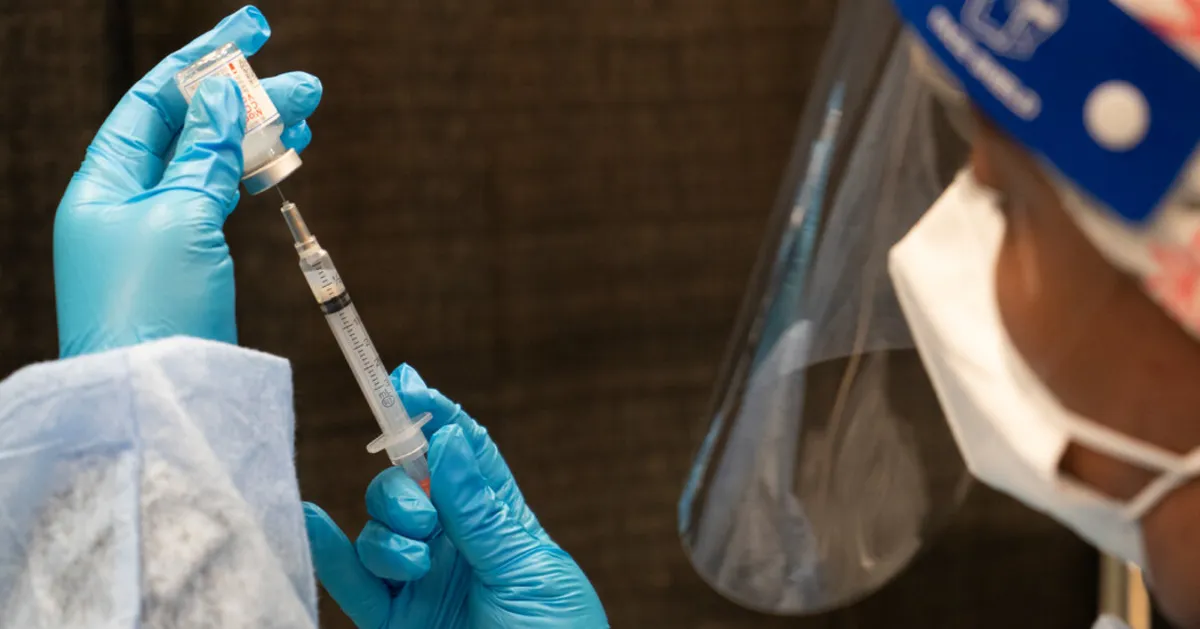
In a significant move to enhance public health, New Jersey is following in the footsteps of New York and several other states by rejecting federal efforts to limit eligibility for the latest coronavirus vaccines. On Monday, the New Jersey Department of Health issued a groundbreaking order that allows pharmacies to administer the latest COVID-19 vaccines to anyone aged 3 and older. This proactive approach aims to increase vaccine accessibility amid ongoing concerns about the virus.
New Jersey's decision mirrors a similar order issued last week by New York Governor Kathy Hochul. Joining these two states, at least four others, including Colorado, Massachusetts, New Mexico, and Pennsylvania, have also taken significant steps to ensure that the most recent vaccines are available to nearly everyone who desires them. This collective action reflects a broader commitment to public health and the importance of vaccination in combating the pandemic.
The New Jersey health officials' order encourages that all individuals aged 6 months and older continue to receive COVID-19 vaccines. For patients younger than 3 years, vaccinations can be accessed at clinics or doctors' offices. This inclusive policy aims to ensure that every age group is protected against COVID-19, especially in light of the recent rise in cases.
These actions come amidst a broader campaign led by Robert F. Kennedy Jr., the former secretary for health and human services under the Trump administration, who has been vocal against vaccines, particularly those utilizing mRNA technology. This technology has been crucial in the development of some of the most widely used coronavirus vaccines. The federal government has recently canceled nearly $500 million in grants and contracts aimed at developing mRNA vaccines, raising concerns among public health advocates.
Last month, the Food and Drug Administration (FDA) authorized updated COVID-19 vaccines, but only for specific groups, namely individuals aged 65 and older and younger individuals with underlying health conditions that increase their risk of severe illness from COVID-19. This represents a stark shift from previous authorizations that permitted vaccinations for a broader demographic, including young and middle-aged individuals without specific health concerns.
Since the FDA's limited authorization, pharmacies have adopted varying stances on vaccine eligibility. Kelly McMahon, the executive director of a trade association for pharmacists in New York, expressed that despite state orders, some pharmacists remain hesitant to administer the vaccine to individuals outside of the FDA’s authorization. This hesitation stems from concerns about conflicting regulations and potential reimbursement issues with insurance companies.
“It’s always a concern when there is a direct conflict between what state regulations are saying and what federal regulations are saying,” McMahon noted, highlighting the complexities faced by pharmacists as they navigate these challenges.
Despite Gov. Hochul’s directive, some major pharmacy chains are still adhering to the FDA's eligibility criteria. A CVS spokesperson indicated that patients must confirm their eligibility before vaccination, primarily focusing on those aged 65 and older or individuals with underlying health conditions. This cautious approach contrasts sharply with CVS's previous practices, where vaccinations were available more broadly.
On the other hand, Walgreens informs its customers on their website that individuals younger than 65 are only eligible for the vaccine if they have specific health conditions, reflecting a cautious and conservative approach to vaccine administration.
The New Jersey order, signed by acting health commissioner Jeffrey A. Brown, emphasizes that the FDA’s recent restrictions on vaccine eligibility contradict the recommendations from the medical community. The order states that these limitations have led to "fear, uncertainty, and confusion in New Jersey," underscoring the need for clear communication and accessible healthcare options.
As states led by Democrats, including California, Oregon, and Washington, explore various initiatives to promote vaccination, the formation of a health alliance that operates independently from federal recommendations is on the table. These collaborative efforts aim to bolster vaccination rates and enhance public health safety across the nation.